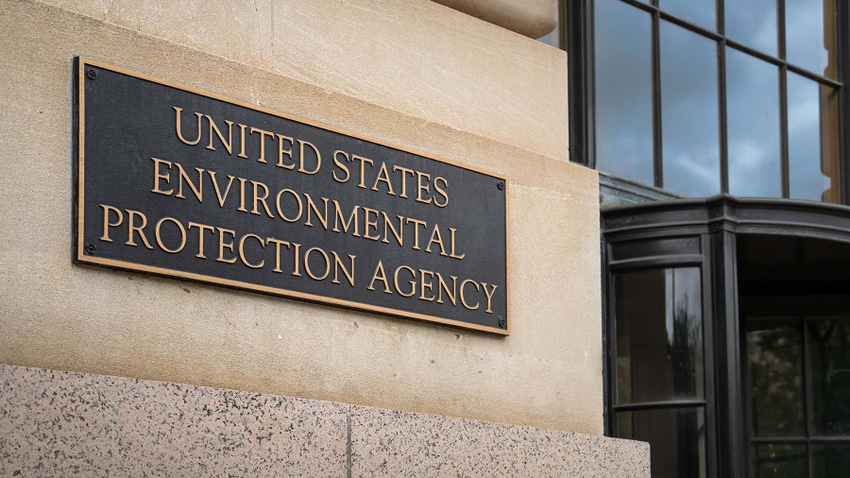
On Tuesday the Environmental Protection Agency released its latest Waters of the United States rule. The long-anticipated announcement comes after the Supreme Court’s May ruling in the Sackett v. EPA case overturned portions of President Biden’s controversial rule.
Officials with EPA and the U.S. Army say their agencies are committed to following the law and implementing the Clean Water Act to protect the nation’s waters from pollution and degradation. They believe the latest rule should provide the clarity needed to advance those goals, allowing them to move forward with infrastructure projects, economic opportunities and agricultural activities.
“While I am disappointed by the Supreme Court’s decision in the Sackett case, EPA and Army have an obligation to apply this decision alongside our state co-regulators, tribes, and partners," EPA administrator Michael Regan says. “We’ve moved quickly to finalize amendments to the definition of ‘Waters of the United States’ to provide a clear path forward that adheres to the Supreme Court’s ruling. EPA will never waver from our responsibility to ensure clean water for all. Moving forward, we will do everything we can with our existing authorities and resources to help communities, states, and tribes protect the clean water upon which we all depend.”
At the core of the WOTUS rule controversy is the EPA’s authority to regulate small bodies of water, including those on private land. The Clean Water Act authorizes EPA to regulate the nation’s navigable waterways. Under the previous WOTUS rule issued by President Biden at the end of 2022, that included bodies of water with a “significant nexus” to navigable waterways. The Supreme Court ruled that definition was too broad, insisting EPA could only regulate bodies of water with a direct connection to navigable waters.
The new EPA guidelines remove the significant nexus test from being considered when determining which waters are federally protected. It also clarifies interstate wetlands do not automatically qualify as interstate waters subject to the Clean Water Act. Language regarding federally protected “additional waters” has also been revised to comply with the high court.
“We have worked with EPA to expeditiously develop a rule to incorporate changes required as a result of the Supreme Court’s decision in Sackett,” Michael Connor, assistant secretary of the Army for Civil Works, says. “With this final rule, the Corps can resume issuing approved jurisdictional determinations that were paused in light of the Sackett decision. Moving forward, the Corps will continue to protect and restore the nation’s waters in support of jobs and healthy communities.”
Ag groups not sold yet
In a statement released shortly after the announcement, National Cattlemen’s Beef Association chief counsel Mary-Thomas Hart says the new WOTUS rule is an important step toward bringing EPA more in line with the Supreme Court ruling. She added that NCBA will continue analyzing this latest development to ensure cattle producers are protected.
The American Farm Bureau Federation has apparently done all the analysis it needs. AFBF President Zippy Duvall says the rule is still unfair to farmers. While pleased that the significant nexus language has been eliminated, he said EPA ignored other clear concerns raised by the Supreme Court justices as well as 26 states that filed lawsuits to nullify the previous WOTUS rule.
“EPA had a golden opportunity to write a Waters of the U.S. rule that’s fair to farmers and stands the test of time, but instead chose to continue government overreach and revise only a small slice of the rule that was rejected by the Supreme Court,” Duvall says.” “Farmers and ranchers share the goal of protecting the resources they’re entrusted with. They deserve a rule that respects farmers as partners in that effort.”
Other organizations, including the National Corn Growers Association, USA Rice, The Fertilizer Institute and others took issue with the process in which the law was drafted. Like the AFBF, they were disappointed EPA only focused on the Supreme Court decision without taking into account other concerns or soliciting public feedback.
“The agency failed to open the process to public comment and engagement, which would have been extremely valuable,” NCGA president Tom Haag says. “Instead, the agency has released a rule that does not fully respect the holdings from the recent U.S. Supreme Court case on WOTUS.”
Attorney Damien Schiff of the Pacific Legal Foundation, which argued the Supreme Court case on behalf of the Sackett family, says the new rule misses the mark. While acknowledging EPA was right to abandon the significant nexus standard, he says the WOTUS standards for tributary and wetlands jurisdiction are still “notably deficient.”
“The amended rule's inaccurate formulation of the Sackett test for tributary and wetlands jurisdiction underscores the risks of error that agencies needlessly undertake when they, as here with EPA and the Army Corps, choose to issue rules without the normal notice and opportunity for public comment," Schiff says.
To address public concerns, EPA plans to host a series of listening sessions this fall that will include co-regulators and stakeholders. However, that doesn’t mean this is the end of the long-running WOTUS saga. In fact, it may only be a matter of time before the rule is brought before the courts again.
Read more about:
WOTUSAbout the Author(s)
You May Also Like






